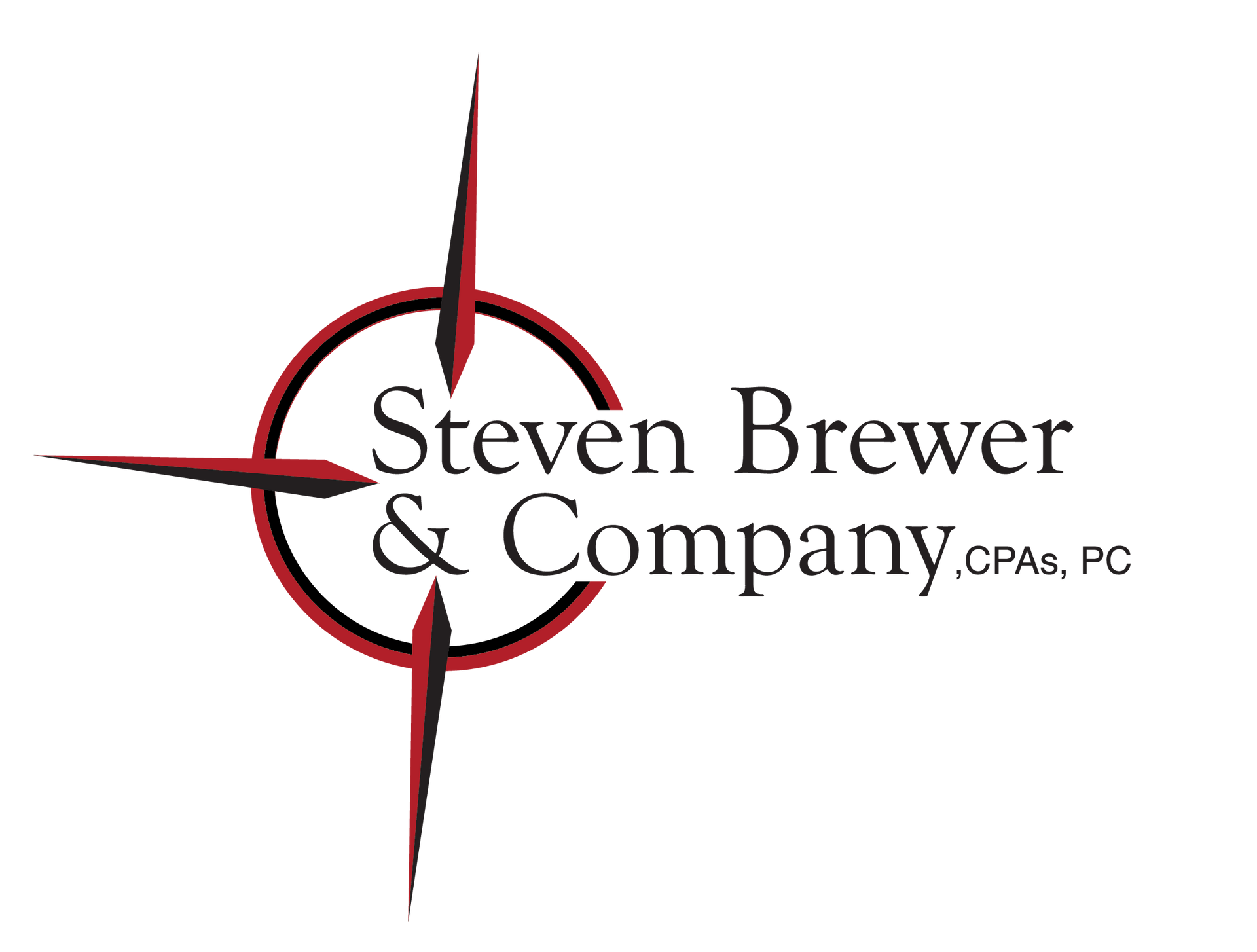New Scam – Self Employment Tax Credit
Author name
By Steven Brewer, CPA
Another tax scam has hit the market and social media. It is called the “Self-Employment Tax Credit”. The scam is marketed to self employed individuals and gig economy workers. The scam claims you can get up to $32,000 in a refundable credit for working during the COVID-19 pandemic period.
Social media seems to be the biggest media used to reach out to the unsuspecting people. This is causing them to file false amended returns. The promoters are charging hundreds, if not thousands, of dollars to prepare and help file these false returns. When the IRS denies the return and the taxpayer goes back to find the promoter who filed the return, they will be gone.
The closest tax credits that are available are the Credits for Sick and Family Leave for 2020 and 2021. What is happening is that taxpayers are claiming this credit when they are employees of a company and not self-employed person. These credits are only for self employed individuals who were not allowed to work (including caring for an individual subject to quarantine or isolation order) along with other technical requirements.
The marketing being used by the promoters is very similar to that seen for promotion of the Employee Retention Credit scams. As always, if you have any questions about a tax credit or other tax items, seek out the expertise of a professional tax preparer.
Also, there are other tax scams showing up for Fuel Tax Credit and household employee taxes. If you suspect something is a scam, it probably is.

January 22, 2025
Recently I came across a professional article about an old subject. Proper documentation. It was just a good reminder of a basic requirement for claiming deductions and expenses for returns. First off, the burden of proof for all deductions and expenses falls on the taxpayer. It is not the IRS job to disprove any deductions and expenses claimed, initially. Once the taxpayer submits proper documentation or evidence for a deduction/expense, then it becomes the IRS’s responsibility to disprove it. When providing proof of documentation, it must be organized such that one can know that it is the related deduction/expense. A tax court case in 2024 involved the taxpayer’s providing photocopies of bills, receipts and handwritten notes, as a group, along with a spreadsheet for one group of the expenses claiming they represented the deductions/expenses on his return. The copies were not grouped by the deductions/expenses or totaled to show the amount claimed. The court called it “the Shoebox Method”. For those of you too young to know what this is, us, old timers, use to see clients bring in a shoebox full of paid bills/receipts in a shoebox and give it to us to process. For some we call it the dashboard method because all the receipts are kept on the dashboard of the taxpayer’s truck until needed. The spreadsheet itself was brought into question as it contained in its listing transactions that no documentation could be found on. Also, transactions were doubled from the original receipt and the credit card receipt. After that, individual transactions were questioned when it appeared that no clients/customers were involved in the meetings. So, the spreadsheet was not credible. So, to summarize, when you want to claim a deduction or expense then you must have a document that supports the claim and then those related documents must be grouped together and totaled to properly substantiate the claim.

January 19, 2025
TRYING TO SAVE MONEY WHEN CHOOSING A CPA COULD BE THE WORST DECISION YOU’VE EVER MADE! The new year is here and now is the time when most, especially if they are business owners, start getting serious about closing out last year and getting ready for meetings with their CPA. It’s also a good reason to ask yourself- did I hire this person to do my taxes because they were cheap or because they were good? There are two things in life you don’t want to scrimp on when hiring a professional; one is your doctor and the other is your CPA and when choosing any professional there are usually three considerations: Good Fast Cheap But here’s the catch: You can usually only have two.
Like your physical health, the stakes are too high to cut corners or gamble when it comes to your business health Choose wrong and simple financial errors could lead to missed opportunities, tax penalties, or cash flow crises that could derail your business. So, this year, ask yourself the following questions. What’s the long-term cost of going fast and cheap and getting this wrong? Am I focused on quick and easy fixes over long term, sustainable solutions? In selecting a CPA partner, how much value do I place on accuracy and expertise? Is it enough to invest in it?
If you are building something for you and your families future, consider hiring a CPA that will take care of your business now while preparing you for the future. Have a tax or financial planning question? Contact Steven Brewer & Company at (812)-883-6938 or go to https://www.stevenbrewercpa.com/
Want more information?

Steven Brewer & Company, CPA's PC
© 2025
Latest news

January 22, 2025
Recently I came across a professional article about an old subject. Proper documentation. It was just a good reminder of a basic requirement for claiming deductions and expenses for returns. First off, the burden of proof for all deductions and expenses falls on the taxpayer. It is not the IRS job to disprove any deductions and expenses claimed, initially. Once the taxpayer submits proper documentation or evidence for a deduction/expense, then it becomes the IRS’s responsibility to disprove it. When providing proof of documentation, it must be organized such that one can know that it is the related deduction/expense. A tax court case in 2024 involved the taxpayer’s providing photocopies of bills, receipts and handwritten notes, as a group, along with a spreadsheet for one group of the expenses claiming they represented the deductions/expenses on his return. The copies were not grouped by the deductions/expenses or totaled to show the amount claimed. The court called it “the Shoebox Method”. For those of you too young to know what this is, us, old timers, use to see clients bring in a shoebox full of paid bills/receipts in a shoebox and give it to us to process. For some we call it the dashboard method because all the receipts are kept on the dashboard of the taxpayer’s truck until needed. The spreadsheet itself was brought into question as it contained in its listing transactions that no documentation could be found on. Also, transactions were doubled from the original receipt and the credit card receipt. After that, individual transactions were questioned when it appeared that no clients/customers were involved in the meetings. So, the spreadsheet was not credible. So, to summarize, when you want to claim a deduction or expense then you must have a document that supports the claim and then those related documents must be grouped together and totaled to properly substantiate the claim.

January 19, 2025
TRYING TO SAVE MONEY WHEN CHOOSING A CPA COULD BE THE WORST DECISION YOU’VE EVER MADE! The new year is here and now is the time when most, especially if they are business owners, start getting serious about closing out last year and getting ready for meetings with their CPA. It’s also a good reason to ask yourself- did I hire this person to do my taxes because they were cheap or because they were good? There are two things in life you don’t want to scrimp on when hiring a professional; one is your doctor and the other is your CPA and when choosing any professional there are usually three considerations: Good Fast Cheap But here’s the catch: You can usually only have two.
Like your physical health, the stakes are too high to cut corners or gamble when it comes to your business health Choose wrong and simple financial errors could lead to missed opportunities, tax penalties, or cash flow crises that could derail your business. So, this year, ask yourself the following questions. What’s the long-term cost of going fast and cheap and getting this wrong? Am I focused on quick and easy fixes over long term, sustainable solutions? In selecting a CPA partner, how much value do I place on accuracy and expertise? Is it enough to invest in it?
If you are building something for you and your families future, consider hiring a CPA that will take care of your business now while preparing you for the future. Have a tax or financial planning question? Contact Steven Brewer & Company at (812)-883-6938 or go to https://www.stevenbrewercpa.com/
